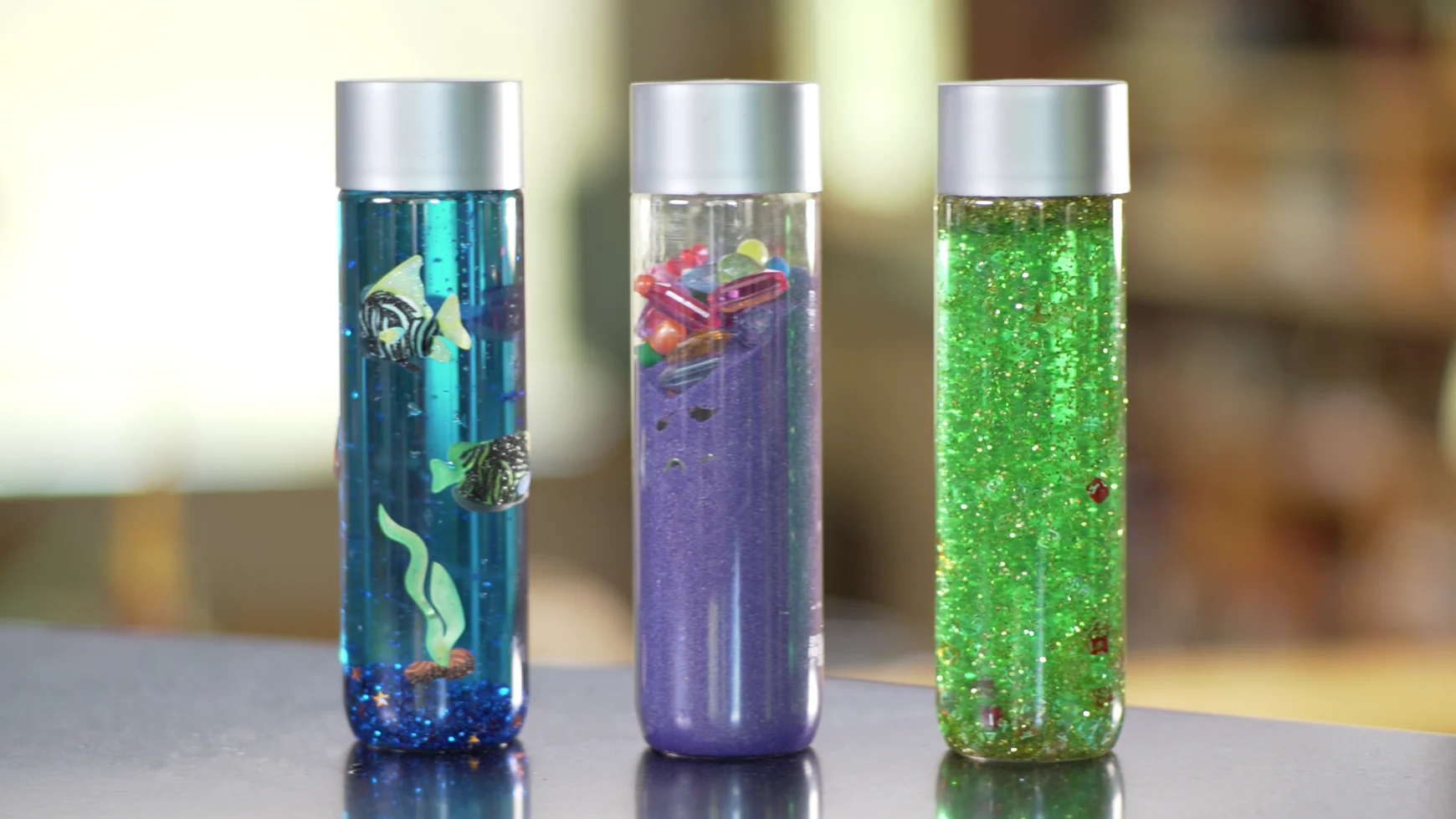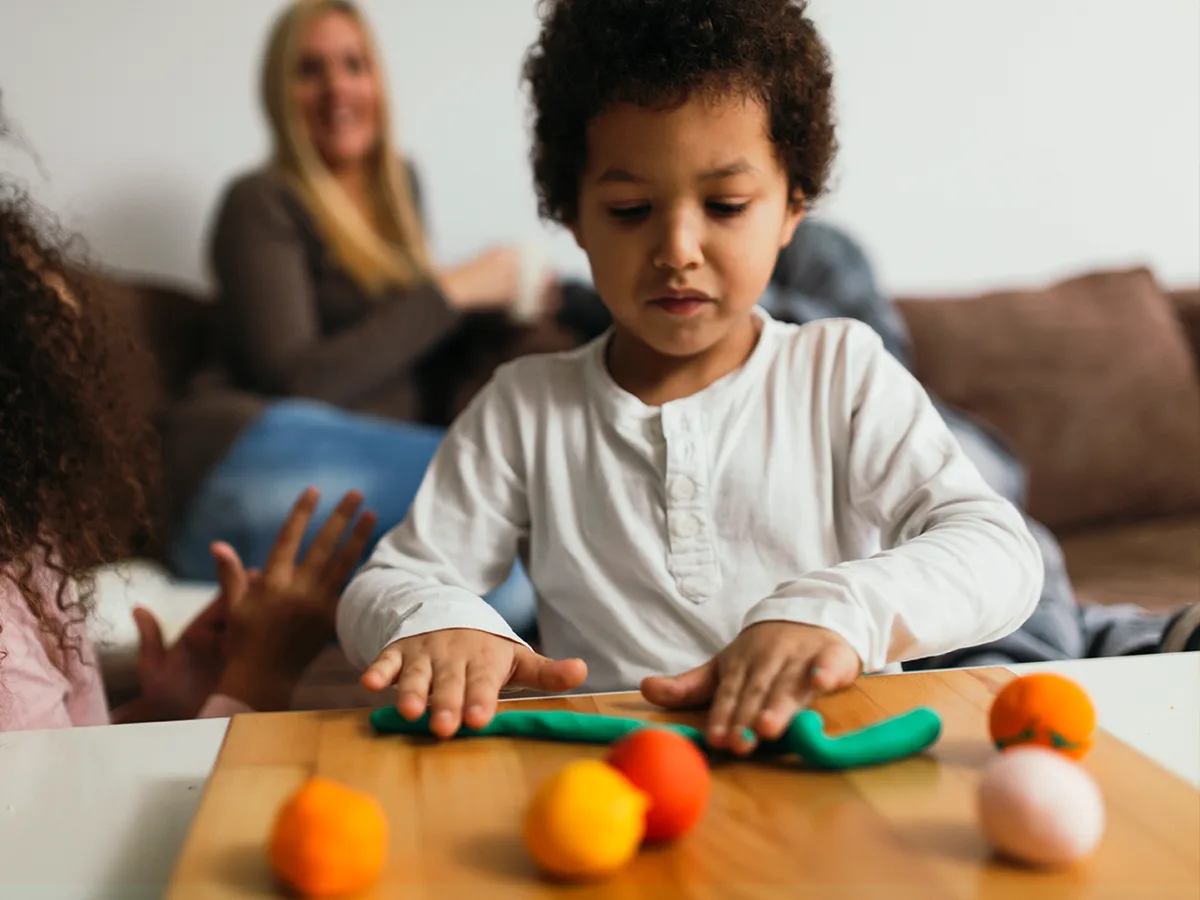How to make slime: 3 sensory-friendly recipes
Some kids love playing with slime. You may wonder how to make slime, especially how to make nonsticky slime that doesn’t leave a mess. There are lots of easy ways to make homemade slime. These three recipes are a great place to start.
These slime recipes don’t use liquid starch or other toxic ingredients. Your supplies will vary depending on what type of slime you choose to make. But here are the basic ingredients to make three kinds of slime:
Multiple bottles or a large jug of white school glue
Shaving cream (foam, not gel)
Saline contact lens solution
Baking soda
Packets of unflavored gelatin
Corn syrup
Washable paint or food coloring
Hot water
A clean storage container
A measuring cup and measuring spoons
A plastic or wooden mixing spoon
Newspaper or waxed paper
Now just follow the directions below.
1. How to make saline solution putty slime
This easy-to-make slime is a bit like putty. It helps kids direct focus through stretching, pulling, rolling, and squishing. Adding washable paint or food coloring can make it even more fun. (You can also make two batches of different colors to roll together.)
Here’s what to do:
Cover a flat surface with newspaper or waxed paper.
Place an empty plastic storage container on top of it and pour in 6 ounces of white school glue.
Add 1/2 tablespoon of baking soda and mix together.
Add 1/2 tablespoon of saline contact solution and mix again until it starts to form a ball and peel away from the edges of the container.
Add a few drops of washable paint or food coloring (washable paint is less likely to stain, but food coloring will be brighter).
Dump it out onto the papered surface and knead. If the slime is too sticky, sprinkle in a little more baking soda.
If it won’t stick together, add more saline solution a few drops at a time.
2. How to make fluffy shaving cream slime
This slime is softer and lighter than putty slime. It’s good for kids who like the feeling of squishy materials, but who don’t like the heavy work of pulling at putty.
Here’s how to make it:
Cover a flat surface with newspaper or waxed paper.
Fill an empty plastic container with 3 cups of shaving cream.
Add washable paint or food coloring and 4 ounces of school glue to the shaving cream.
Stir.
Add 1/2 teaspoon of baking soda and mix again.
Add 1 tablespoon plus 1 1/2 teaspoons of saline contact lens solution and whip it together. (The slime will begin to pull away from the edges of the container and look like cotton candy.)
Kids can knead it in the bowl and then pull it out and place it on the flat surface.
If it’s too sticky, add a few more drops of saline solution.
3. How to make sticky “booger” slime
Kids may love the name of this edible, sticky slime. But those who are oversensitive to tastes or smells might be bothered by its strong smell.
Here’s how to make it:
Add 1/2 cup boiling water to a heat-safe container.
Sprinkle 3 packets of unflavored gelatin into the water and stir. (If kids are sensitive to the smell, add a few drops of lemon juice or peppermint extract to the mixture.)
Let the mixture sit and cool for two minutes.
Add 1/4 cup light corn syrup.
Stir and let sit until cool. As it cools, the slime will thicken.
If it gets too thick, add water a teaspoon at a time to thin it out.
Making slime isn’t just fun. It can be a helpful activity for kids who seek out sensory stimulation. That’s because playing with slime can help with self-regulation. It’s also a good way to channel extra energy and excitement.
Looking for more fun ideas? Check out other sensory activities, like how to make a sensory bottle and sensory-friendly indoor games.



